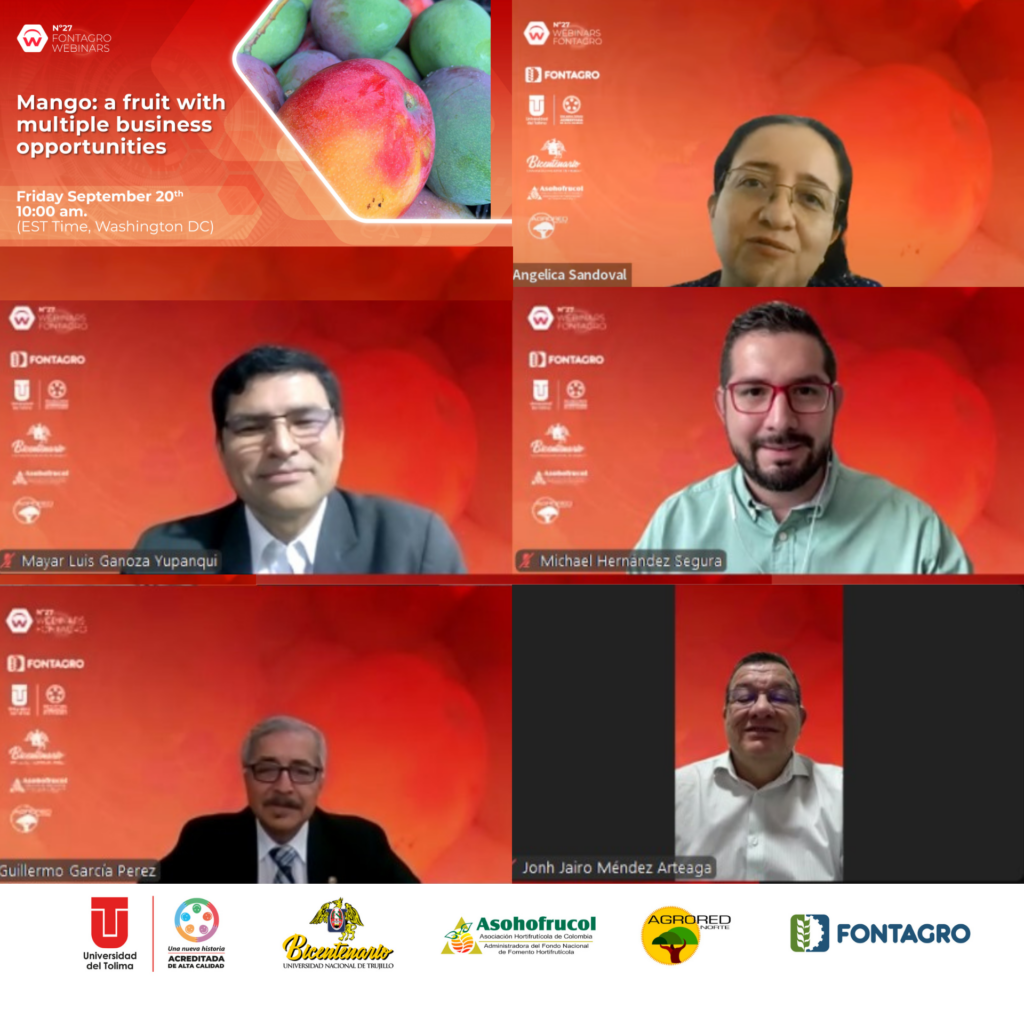
The webinar titled “Mango: a fruit with multiple business opportunities” was successfully held, led by FONTAGRO in collaboration with the University of Tolima (UT) – Colombia, the National University of Trujillo (UNT) – Peru, the Colombian Horticultural Association, and Agrored Norte – Peru. This event, which brought together researchers and academics, aimed to share an integrated approach to maximizing the use of mango, promoting its commercial application, and generating value from its varied components.
Researchers highlighted that mango peels account for 7% to 24% of the fruit’s total weight, while the stone and seed make up between 20% and 60%. These parts contain phytochemical compounds with antioxidant, anti-inflammatory, antidiabetic, antibacterial, and antiproliferative properties. The seed, which is rich in fats, has also been approved as a substitute for cocoa butter, expanding its use in high-value industries.
This event marks a significant step towards promoting sustainable practices and generating value from underutilized natural resources, benefiting local communities and the productive sectors of Colombia and Peru.
To watch the webinar recording, visit: https://www.youtube.com/live/QADi4d6EfKc?si=8zG71Lw031qu0D6F
To learn more about this FONTAGRO project, visit: https://www.fontagro.org/new/proyectos/aprovechamiento-integral/en
***
About FONTAGRO
FONTAGRO was created 1998 with the purpose of promoting the increase of the competitiveness of the agri-food sector, ensuring the sustainable management of natural resources and the reduction of poverty in the region. The objective of FONTAGRO is to establish itself as a sustainable financing mechanism for the development of agricultural technology and innovation in Latin America and the Caribbean and Spain, and to establish a forum for the discussion of priority topics of technological innovation. The member countries are: Argentina, Bolivia, Chile, Colombia, Costa Rica, Ecuador, Spain, Honduras, Nicaragua, Panama, Paraguay, Peru, Dominican Republic, Uruguay and Venezuela. In the last 27 years 204 regional agricultural innovation platforms have been co-financed for an amount of US $ 150.7 million, which has reached 531 institutions and 35 countries worldwide.
